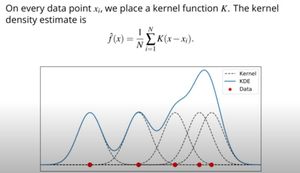The 2025 Indian by-elections have shifted the political gears significantly, marking decisive victories for the Bharatiya Janata Party (BJP) and the Dravida Munnetra Kazhagam (DMK) as results were announced for Milkipur and Erode East on February 8. BJP candidate Chandrabhanu Paswan emerged as the prominent winner against the Samajwadi Party's Ajit Prasad, showcasing the latter's diminishing dominance amid growing fortunes for the BJP.
Paswan's lead, which expanded to over 17,000 votes as the counting progressed, marks Milkipur's seat—a politically significant area within the Ayodhya district—as witnessing dramatic shifts post the Samajwadi Party's earlier victories. "This win is not just for Milkipur but for the change we are bringing across the nation," said Paswan, expressing gratitude to PM Modi and UP Chief Minister Yogi Adityanath for their unwavering support.
Conversely, the Erode East constituency displayed expectations of comfort for DMK's Chandhirakumar VC, who surged dramatically with over 41,140 votes against his rival, Naam Tamizhar Katchi's M.K. Seethalakshmi. Having won previous elections predominantly with more significant margins, the win for Chandhirakumar can be seen against the backdrop of the Congress’ late MLA EVKS Elangovan's demise, which necessitated this bypoll. The DMK, thereby, faced minimal formidable opposition after many key players from rival parties boycotted the polls.
The political tussle seemed to highlight undercurrents of discontentment within rival factions, particularly for the Samajwadi Party. Paswan's rise has been accompanied by SP's chief, Akhilesh Yadav, criticizing alleged discrepancies within the electoral process, arguing, "When the SP loses, they blame others. This time it's no different." His sentiments echoed those of numerous opposition leaders who remain skeptical about the BJP’s claims of fair electoral processes.
Milkipur, known for its politically charged atmosphere, recorded over 65% voter turnout, which some observers say reflects the citizens' engagement even amid accusations by the SP about vote manipulations. Dinesh Sharma, BJP MP, articulated, "The results testify to the breakdown of the Samajwadi Party's arrogance over the Lok Sabha elections." This comment alludes to broader narratives of party decline as indicated by BJP's celebratory spirit following recent wins.
Meanwhile, Erode East's election saw voter turnout at approximately 67.98%, with political dynamics chaotic yet interesting due to the involvement of 46 candidates, predominantly independents. Contrary to the BJP’s political maneuvers, the DMK's confidence shone through their relaxed campaign approach, not engaging high-profile campaigners, yet managing substantial voter engagement, according to district secretary S. Muthusamy. "The DMK candidate will win by margin of 1.2 lakh votes," he confidently stated.
The stark differences observed between the two constituencies and their respective election campaigns highlight the contrasting political landscapes across India. With Erode's outcome interpreted broadly as part of DMK’s growing influence, serious questions loom over the future of traditional parties like AIADMK and the future strategy of former allies. Srinivasan, Tamil Nadu's Chief Minister, said, "We’ll continue to serve the people, and the choices reflect their trust. The opposition’s claims about our strategies stem from their fears."
Despite controversies surrounding the elections, including accusations of DMK bribing voters, the electoral outcome suggests political shifts likely favoring the ruling parties. "We have proved once again—our governance resonates with the people," said Chandhirakumar, reinforcing the DMK's narrative of success amid turbulence within traditional opposition ranks.
The events from the Milkipur and Erode byelections serve as more than just results; they foretell potential shifts heading toward India's upcoming main elections. While BJP's responses seem indicative of optimism and grandeur, the tactical moves and retreats (or boycotts) from parties indicate an atmosphere ripe for testing political idiosyncrasies. The political predilections observed this time mark significant hurdles the opposition must navigate if they hope to recapture their fading influence.
Both parties face their share of challenges, with BJP's local leadership claiming ground and DMK showcasing resilience amid opposition disputes. The narratives spun around these results promise to ripple through the political terrain, likely shaping strategies for upcoming electoral campaigns far beyond the bypolls. Political sentiment currently suggests these wins foreshadow tougher skirmishes as 2026 assembly elections loom on the horizon.



